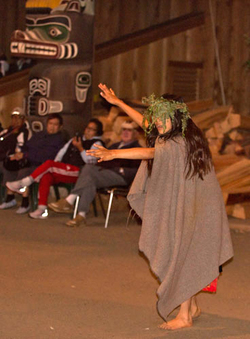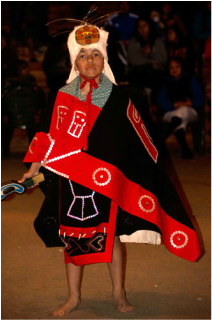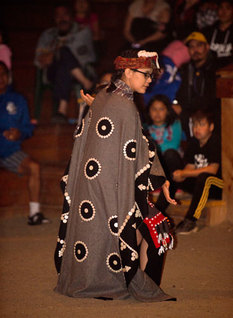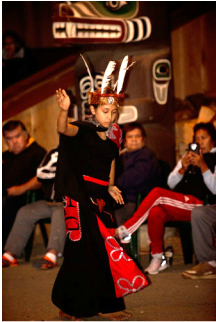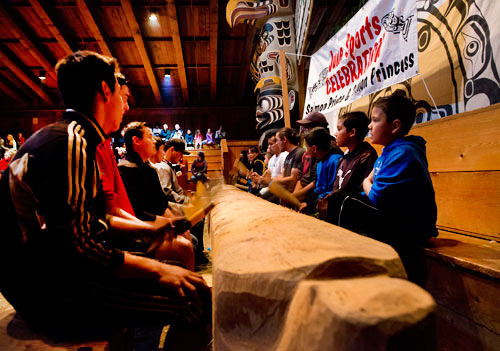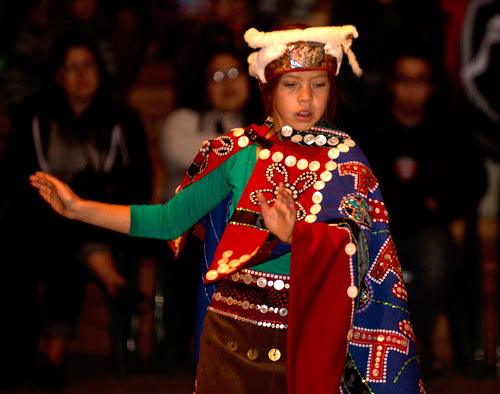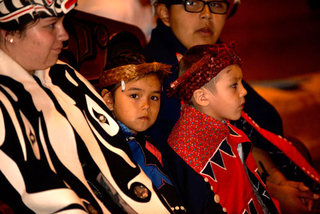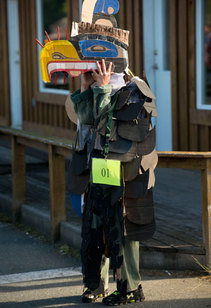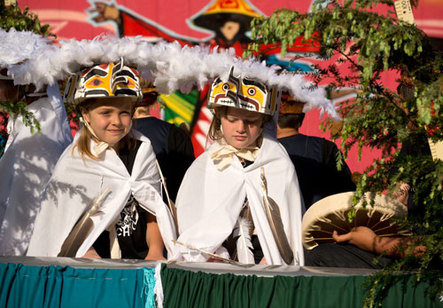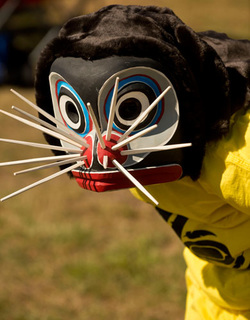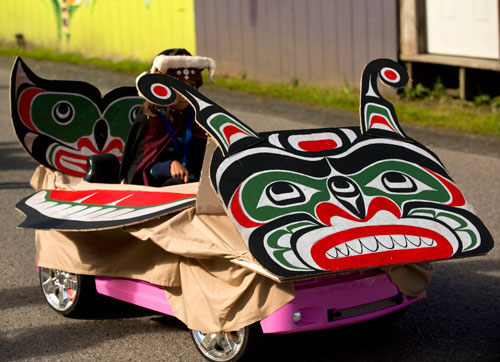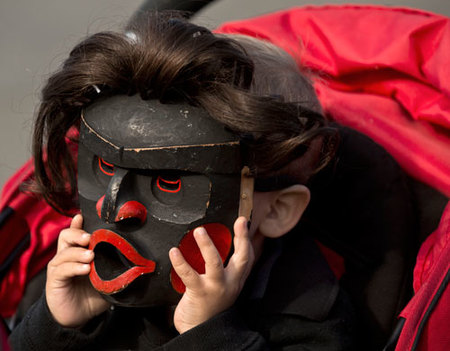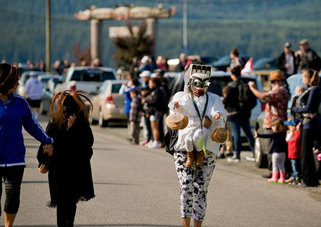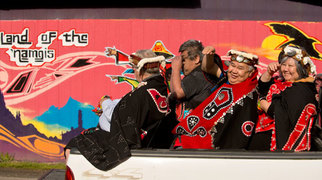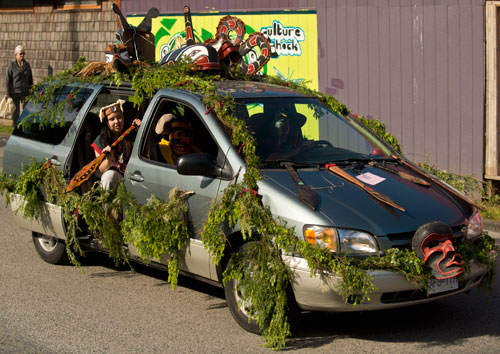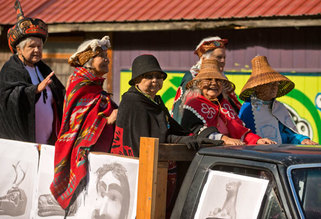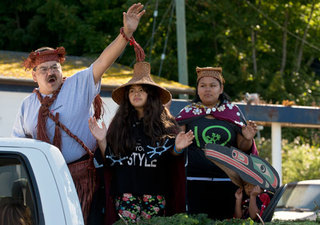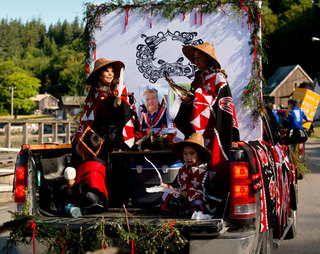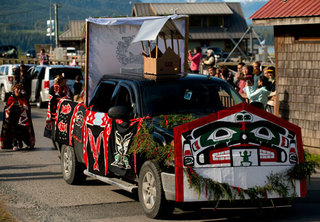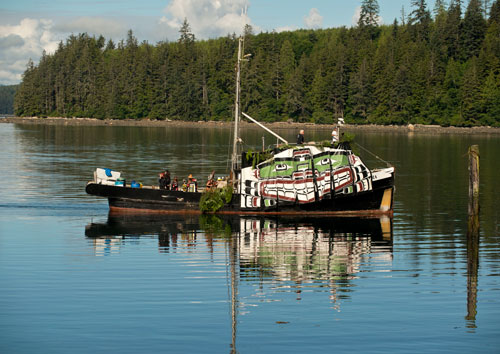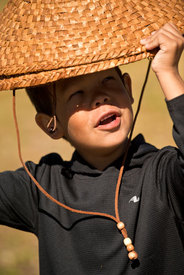Thousands of generations of of Kwakwaka'wakw tribal hands have touched countless salmon and given thanks for their abundance. Working hands will always clean, smoke and can for sustenance, in ceremony, under autumn skies.The people are the salmon, the salmon are the people.
June Sports 2016, Thursday, in Alert Bay, British Columbia
On a Thursday evening in June, Alert Bay’s Big House hosted the Salmon Pageant, kicking off the community-wide celebration called June Sports.
Youth introduce themselves and their family in Kwak’wala and perform traditional dances around a fire in front of the carved house posts.
Others sing and drum on the drum log under the house posts.
Despite obvious shyness they perform admirably.
Kwakwaka’wakw elders radiate a bittersweet joy as these young people put on the ancient blanket of their culture.
Others sing and drum on the drum log under the house posts.
Despite obvious shyness they perform admirably.
Kwakwaka’wakw elders radiate a bittersweet joy as these young people put on the ancient blanket of their culture.
Back in 1958, at the time of the very first June Sports, St. Michael’s residential school
was tearing native children from their families, denying them their culture and their language.
The youths competing today are the physical embodiment of the resilience of the Kwakwaka’wakw culture.
And St. Michael’s Residential School of Alert Bay?
Today, it’s an empty field, demolished in 2015.
Up the hill the Salmon Prince and Princess reign, celebrating a culture both ancient and current.
Children are our greatest resource.
was tearing native children from their families, denying them their culture and their language.
The youths competing today are the physical embodiment of the resilience of the Kwakwaka’wakw culture.
And St. Michael’s Residential School of Alert Bay?
Today, it’s an empty field, demolished in 2015.
Up the hill the Salmon Prince and Princess reign, celebrating a culture both ancient and current.
Children are our greatest resource.
June Sports 2016, Friday, in Alert Bay, British Columbia
Friday morning, during the June Sports’ parade, it was as if all the magic of a Potlatch was parading down Front Street!
There were lovely carved masks. Some of the regalia had been made for the parade from paper and cardboard.
Dancers and drummers.
Magical and supernatural beings.
They all danced along the shore road, bringing a Potlatch out into the daylight.
Eagles screamed overhead and ravens chattered to each other about the spectacle on Front Street.
Dancers and drummers.
Magical and supernatural beings.
They all danced along the shore road, bringing a Potlatch out into the daylight.
Eagles screamed overhead and ravens chattered to each other about the spectacle on Front Street.
Elders in regalia rode by in pick-up trucks, laughing and joking, as usual, with spectators.
Vans festooned with cedar had “paddlers” stroking their way down Front Street.
Vans festooned with cedar had “paddlers” stroking their way down Front Street.
Participants danced along the shore road.
Eagles screamed overhead and ravens chattered to each other about the spectacle on Front Street.
Eagles screamed overhead and ravens chattered to each other about the spectacle on Front Street.
|
Out on the water, Kitgoura, a local fishing boat, sailed by sporting a 15-ft x 30-ft panel
painted with a traditional Northwest design. Many participants and spectators reminisced about the past when there had been 20 or 30 boats in the boat parade. In 1958, the very first year of June Sports, indigenous people were shamed, punished and even resentful about being First Nations. This June morning in 2016, though, these never-to-be-forgotten injustices took a back seat to showcasing the elders’ resilience, the spontaneous energy of the youth and the participants’ deeply felt connection to their culture. |
